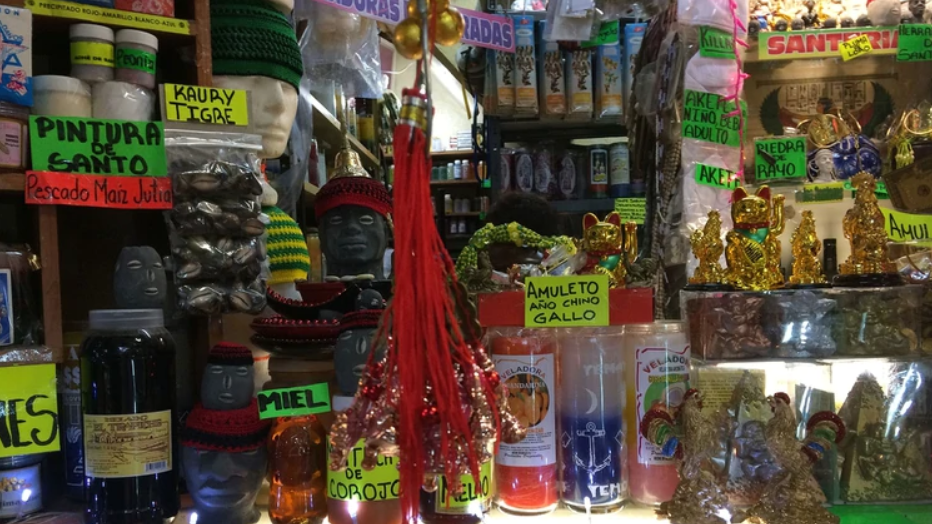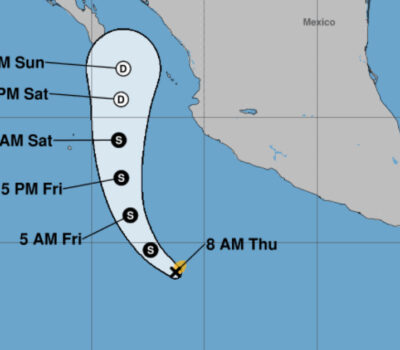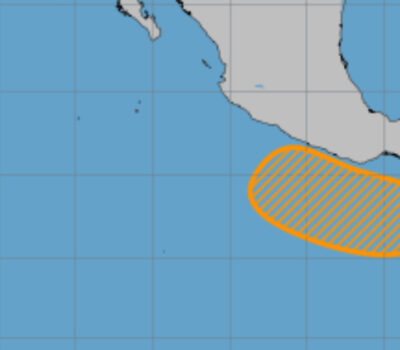Karina offers many remedies for all kinds of illnesses at her stall in the Sonora market in Mexico City, but she does not have an antidote against the coronavirus, but she does have a method that helps “a lot,” according to her: “Three white candles are lit and you ask your God for great faith. “
This teacher in esotericism assures that “many people” have come to her consultation at the most magical market in Mexico City looking for a cure for the coronavirus, for which no one has a cure. Nor does she have the answer to fight against COVID-19, although she would like to.
She is content to tell clients that “faith moves mountains” and that they should ask for help “from God, the saints and the dead” for all those “who have died, for those who are going to die and for those infected.”
The faith of which Karina speaks, although it is not practiced in a church, responds to the same human need to “generate rites, rituals, behaviors, and acts to find a certain order in the world”, as Ricardo Trujillo, from the Faculty of Psychology at the National Autonomous University of Mexico (UNAM), explains.
Trujillo says that this is a necessity for all peoples, and that in Latin America, including Mexico, the way of expressing it has more exotic overtones due to its cultural characteristics.
“Latin America and other countries operate much more by image, by the imagination,” he says, something that contrasts with a European conception “more based on dialogue” and with Anglo-Saxon pragmatism.
Isabel, who owns a post in the same market as Karina’s, does not need to theorize about her faith, or about her candles or incenses. She lights a candle and asks God to “listen” to her.
“If they come to do some consultation or some cleaning, I do not tell them that perhaps they will be cured or that they will not. But I think that with faith everything works, ” says the lady at the doors of her particular temple.
Isabel says that the COVID-19 issue is not especially popular these days with her clients, because Mexicans do not want “to touch on that subject as much” and ask more questions “about money, love or because they do not have a job.”
In terms of health, she can only recommend lighting a candle, so now it is what sells the most.
José has been coming to the Sonora market for a long time as a “routine” to receive his cleansings so that “things go well” in life.
While waiting for his turn, this pensioner is sincere when talking about his amulet, the boy Eleggua, who is a deity of the African Yoruba tradition.
“He is a boy who accompanies me. Well, I have him at home and I pray to him every day. I talk to him as if he were a person about things that worry me or things that don’t worry me,” he says.
Part of his regular chat with Eleggua is “projecting gin on him and also blowing tobacco smoke at him” before reading him a few sentences. José has the habit, but also affirms that in the current circumstances “there must be more people” looking for their own ritual.
He agrees with the professor from the Monterrey Technological Institute, Alejandro Díaz, specialized in religious surveys, and who highlights that the popular religion in the case of Mexico overflows a sacramental religion.
“Popular religiosity seems to have an important expression and even in some percentage greater than formal attendance at worship,” Díaz defends.
The faithful of Santa Muerte this week agreed with the expert. And it is that while the churches remain closed in Mexico, this Wednesday, as every first day of the month, the worshipers of that popular figure went punctually to his altar in the northern capital district of Tepito.
The surroundings of the figure of the Saint, despite a drop in attendance, grumbled more vitality than concern about the coronavirus.
There were a few masks, but there was no fear of COVID-19 infection. There were hugs and complicity was demonstrated by contact.
“It is a superior power”, justified Maribel, “for us, beliefs have always been the first”.
Karina offers many remedies for all kinds of illnesses at her stall in the Sonora market in Mexico City, but she does not have . . .












